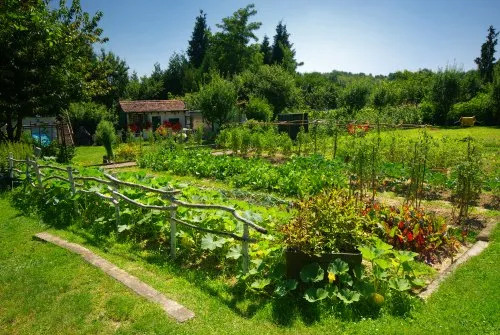It’s no secret that the supply chain disruptions have created global impacts on us. Many of us are feeling the burn of soaring food prices and are ready to do what is necessary to continue to feed our families. It’s not about choice, it’s about survival, and now is the time to take the necessary steps to ensure you can make it when the entire food supply system crashes.
One of the easiest ways to reduce your dependence on the supply chain is to start finding ways to phase out food sourcing and make it a priority! That means you will need to be innovative and think of other ways food can be acquired than just going to the grocery store.
Create more sustainability around your life and you learn to live more simply in the process. You will realize how much you actually have and other ways of putting items to use. As well, as building a more localized food supply. You will also be reducing greenhouse gases due to the gas used to distribute fresh produce. This also boosts local economies and strengthens food security locally, which is where the focus needs to be. Quite honestly, it’s already around you – you just have to know where to find it.
- FORAGE: A simple way to start is to learn how to forage for edible plants. These plants live all around us, are abundant, and better yet; are free! Not only that, these edible plants can be medicinal and will have a lot of nutritional value! Here are some food freebies you can find in your own backyard.
- GROW YOUR OWN: Growing your own food is also a great way to dramatically reduce your dependence on the food supply chain and create some personalized food security for your family. If you live in an area where winters are long, consider growing root vegetables that will last all winter with proper storage and making the most of your garden! Breaking away from the control of the food supply chain not only limits your dependence but also helps you find alternatives to take advantage of. As well, if you have a prolific garden, share your produce with neighbors to help them out in hard times, or get a booth at a local farmers market and sell your extras.
- FARMERS MARKETS: Buying locally supports the local community of growers, beekeepers, and farmers. This can also create relationships that will flourish under a barter and trading system. Farmers markets are thriving in the U.S., see where your local farmers’ market is here: https://farmersmarketcoalition.org/state-map/
As a bonus tip, consider reducing your food waste. On average, we throw away a large percentage of produce because of nonuse. For example, when you buy a lemon or orange from the grocery store, don’t just use the juice but take the time to grate the skin of the citrus fruit off and dehydrate it for later use. Find ways to make the most of your produce investments. One trick that I do with my family is by doing a weekly inventory of my produce. If I feel the produce is going to go bad in the coming days, I either freeze or dehydrate what is left. That way, I have fresh produce for soups, smoothies, and dehydrated veggies for “add water meals” or dehydrated fruits for homemade oatmeal!

Starting a compost pile is also a great way to reduce your waste and reuse produce that has gone bad. Sometimes, even with the best planning, plants in our garden die. A great way to allow them to continue to provide is by tossing them in the compost pile. We’ve even had onions we assumed had gone bad and then they resprout and regrow in the compost pile! If that happens, replant and you may end up with something tasty!
Supply chain disruptions are becoming part of the norm and with that we must accept it and make the necessary changes to ensure our families have what they need to thrive. These small changes can have big impacts!
source : Sara Tipton



